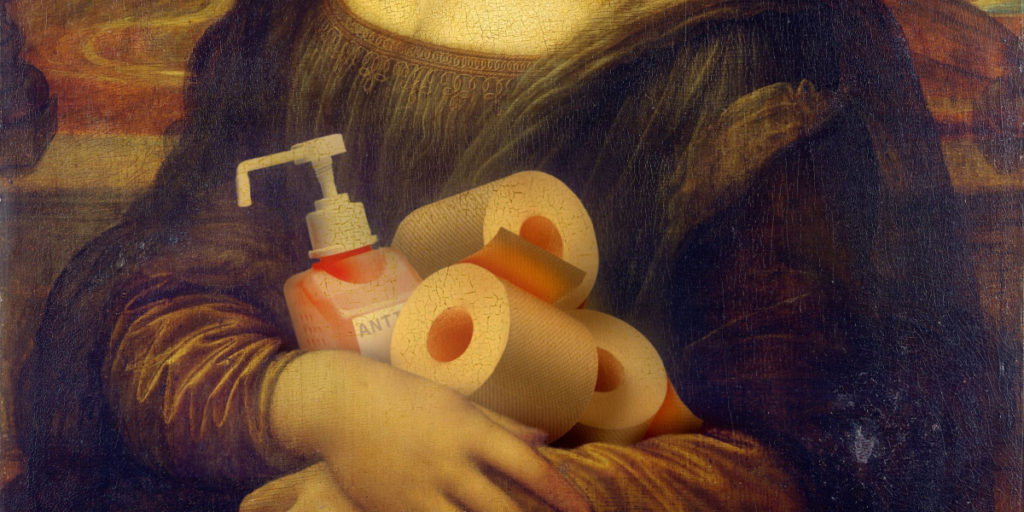Then Jesus told them a parable about their need to pray always and not to lose heart. He said, “In a certain city there was a judge who neither feared God nor had respect for people.In that city there was a widow who kept coming to him and saying, ‘Grant me justice against my opponent.’ For a while he refused; but later he said to himself, ‘Though I have no fear of God and no respect for anyone, yet because this widow keeps bothering me, I will grant her justice, so that she may not wear me out by continually coming.’”And the Lord said, ‘Listen to what the unjust judge says.And will not God grant justice to his chosen ones who cry to him day and night? Will he delay long in helping them? I tell you, he will quickly grant justice to them. And yet, when the Son of Man comes, will he find faith on earth?
Luke 18:1-8
When I was growing up, it was sometimes difficult to get my mother to pay attention. She was and is a wonderful mother, but there are six children in our family. Even as adults, we are constantly making noise. It was hard to hear one person’s demands over the fray. When he was around four years old, my younger brother got a brilliant idea to make my mother pay attention to him. He would crawl onto a higher surface to make himself eye level with her. Then, he would put his tiny hands on her cheeks and turn her face towards him while he spoke. At that point, my mother had no choice. She was forced to face him and hear what he had to say.
The persistent widow in the Lukan parable above doesn’t have the recourses of my younger brother, but it is clear that her constant cries for justice eventually bear a force of their own. Day after day, the tenacious widow puts herself in front of the judge. The judge ignores her for as long as he can, until one day, because he is tired of seeing her and hearing her, he grants her justice. Not because he cares about the woman’s cause, but because she is always in the way. Her presence becomes too present, too persistent. If he wants to remove the obstacles between him and his work, he must respond.
The Coronavirus Has Drastically Altered our Daily Lives

Though we are in this era of social distancing, the deep injustices of our world seem to be remarkably close, laid bare before us in a way that they were not before. It used to be a lot easier to drown out the voices of those crying for justice. Like the judge in the parable, I could look the other way or push disturbing information to the inner recesses of my mind so that I could go about my day. Covid-19 has drastically altered our daily lives and made this tactic of looking away much more difficult. Not only has this pandemic made my own reality look a little more insecure and unstable, but it has also shined a garish spotlight on those who have lived their lives on the front lines of a reality that existed long before Covid-19. It has elevated the voices of those for whom justice has long been denied.
Both the virus itself and the restrictions on our collective life have brought about a confrontation with reality that is both new and incredibly old. For many, coronavirus is the same old song, cast to an even more haunting and urgent register than before. Those of us with more comfort and security are now privy to that song in a new way. We have lost the ability to block it out. We are encountering a lack of options, a lack of power, an inability to look away because the cries are starting to come closer to home. There is nothing that this pandemic has not touched. It has stopped the world in its tracks, forcing us to take stock of where we are and where we have been. This virus is a big, loud proclamation that our old normal was bought at a price that many of us never reckoned with because we weren’t the ones paying. Now, we are face to face with systems and social structures that have been broken from the very beginning. This pandemic has given us a window into what our old reality cost us.
We’ve seen employees forced to work without proper protections while their employers profit off the pandemic. We’ve seen our loved ones call day after day to collect unemployment benefits through a system that was broken long before this virus. We’ve seen governors aggressively re-open their states’ economies, primarily pushing people of color head first into harm’s way and forcing people off their unemployment benefits. We’ve seen due process denied and at times, swift deportation for countless migrants, both young and old. We’ve seen the number of uninsured grow exponentially, especially in states that did not expand Medicaid. We’ve seen that there are far too many vulnerable people for whom social distancing is not an option. These are just (semi) visible atrocities. There are many other stories that remain hidden; people whose lives have slipped through the cracks because they are incarcerated, undocumented, or unhoused, among other reasons. Coronavirus has reminded us that these injustices affect us all. When one person gets sick, we are all affected. The “normal” that many of us are yearning to get back may hide the truth, but it does not go away. Many of us are now confronted with what many others knew long ago. We live in a global system that treats those on the margins of our society as disposable. That margin is expanding rapidly and no one is immune to it. This problem won’t go away when a cure is discovered.
The Coronavirus Pandemic and the Persistent Widow
Biblical scholar Musa Dube writes that the justice that is granted to the persistent widow is imperfect. It is given by an unjust judge who is tired of hearing about one particular case. Widows, Dube suggests, were on the margins of society during Jesus’ time. They were typically excluded from the justice system altogether. Just because the judge grants justice to one widow does not mean that the oppressive system was transformed for all widows. The persistent widow is the exception, not the rule.1Musa W. Dube Shomanah and Musimbi Kanyoro, eds., Grant Me Justice!: HIV/Aids & Gender Readings of the Bible (Pietermaritzburg, South Africa: Orbis Books, 2005), 18. Dube argues that this is precisely what makes Jesus’ interpretation of the parable so radical. God is not like the unjust judge. God is a judge who “is unfailingly in solidarity with the oppressed and exploited.”2 Ibid., 19. We have a God who sees and is grieved by injustice long before we are forced to pay attention to it. Now that we are listening, this same God can guide us in a way forward.
In our old world, we granted partial, piecemeal justice on a case-by-case basis. But in the midst of this coronavirus pandemic, many of us are realizing that this uneven justice has not really improved our collective life together. This virus, as truly devastating as it is (and it is truly devastating), can be a chance to re-imagine our global community. We do not have to live in a world where human beings are treated as if they are collateral for a functioning economy. We do not have to silence the voices of those crying out for justice so we can get through the workday. We do not have to fight to preserve a system that leaves so many of us behind. Some of us have more time to listen than we ever did before. That listening might be painful, even paralyzing. But we also have an abundance of opportunities to act on what we hear. Faith leaders and grass-roots activists were crying for justice long before this pandemic have not stopped their mass movements to demand it from our policy makers. Many have moved online (for example the National Call for Moral Revival on June 20th led by Reverend William Barber and The Poor People’s campaign). These efforts are even easier to attend than before. Re-imagining our life together ought not be done alone, even as we are socially distant.
Author Arundhati Roy writes, “Historically, pandemics have forced humans to break with the past and imagine their world anew. This coronavirus pandemic is no different. It is a portal, a gateway between one world and the next.” This pandemic is blocking our path, forcing us to face all of the injustices of our old reality. But perhaps it also offers a new direction, a new way of being together. As Roy writes, “We can choose to walk through it, dragging the carcasses of our prejudice and hatred, our avarice, our data banks and dead ideas, our dead rivers and smoky skies behind us. Or we can walk through lightly, with little luggage, ready to imagine another world. And ready to fight for it.” I hope we can find the courage and creativity to walk lightly. Our collective survival depends on it.
- Facing and Re-Imagining Ourselves in the Era of Coronavirus - June 8, 2020

